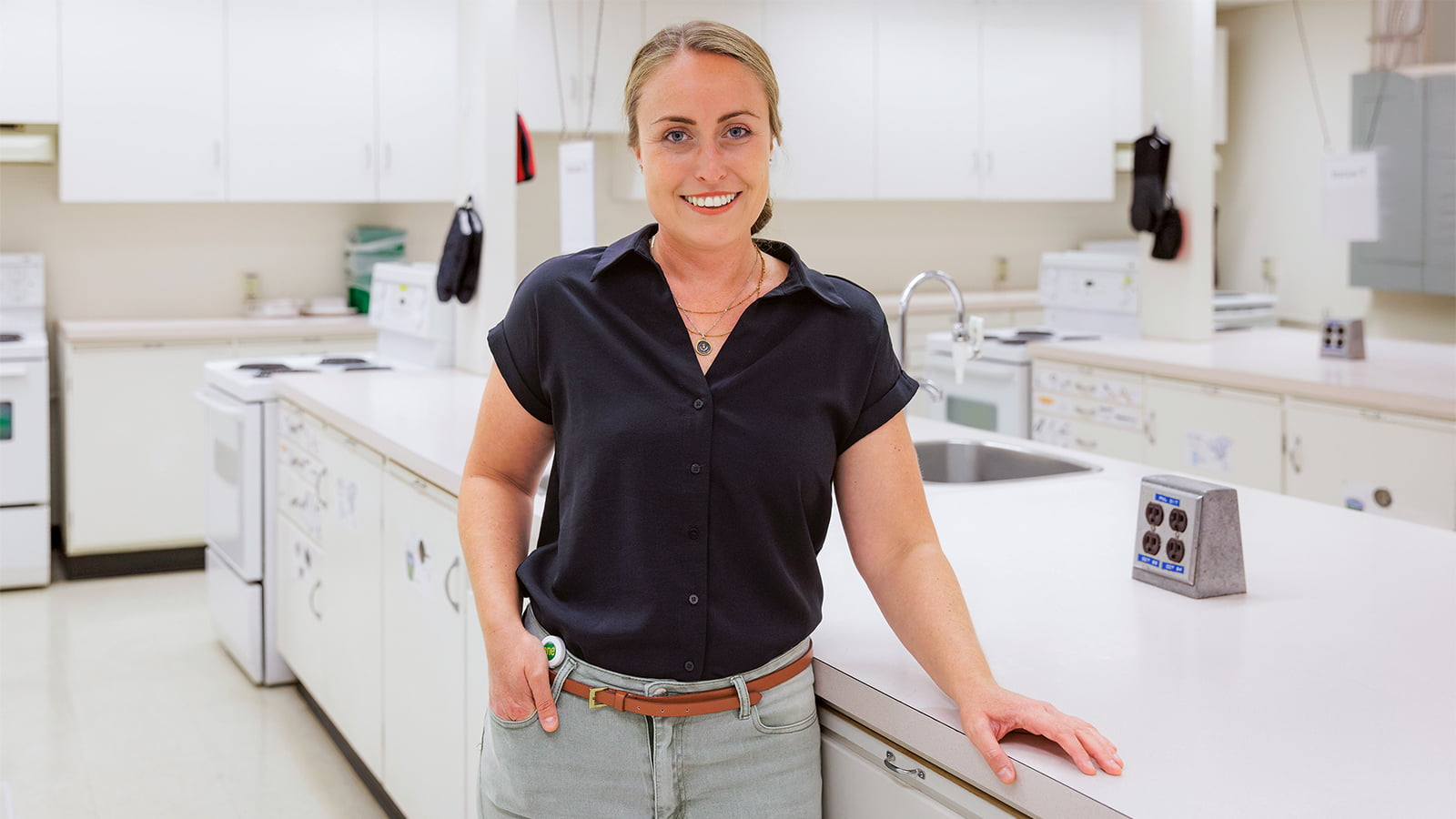A University of Alberta research team is in clinical trials to validate a tool they’ve developed to test the microbiome in your gut and provide a precision diet to restore it to health.
The tool is aimed at people living with inflammatory bowel disease (IBD) but is also proving helpful to those with other inflammatory illnesses, and even people with normal digestion.
“The goal is to understand, based on the microbes that live in your gut, are there specific types of carbohydrates that are best for your health? Are there certain types of carbohydrates that your microbes can’t really do anything with, so you’re either not going to receive a benefit or you may actually experience gut symptoms like bloating, gas, pain or discomfort?” explains principal investigator Heather Armstrong, associate professor of gastroenterology and adjunct in both pediatrics at U of A and internal medicine at the University of Manitoba.
“Once we understand what your gut microbiota looks like, what it’s capable of doing for you, then we can optimize its health using nutrition to make subtle changes and promote the correct microbes to thrive so they are offering you the greatest health outcome,” Armstrong says.
The usual culprits for people with IBD are nondigestible carbohydrates — fibres and starches that aren’t normally absorbed directly into the digestive tract but are instead broken down by microbes using fermentation.
For example, beta fructans are found in foods like chicory root, onions, garlic and bananas. If your gut test shows that your microbiota can’t handle these carbohydrates, the diet would recommend you decrease your intake of them until your microbiome has healed and would prescribe alternatives, such as foods like citrus fruits that are high in pectin fibres, or potatoes, oats, beans and lentils.
Put the peels in your meals
Pectin is loaded with phenolics, chemicals with anti-inflammatory properties. And when you eat your oranges and lemons, along with many plant-based foods, it’s important to make sure you eat the peel and pith too, says Armstrong.
This is part of the healthful Mediterranean diet that is often overlooked in North America.
“You’ll see whole citrus eaten in Albania and Greece and other Mediterranean nations. They’ll take a whole lemon, cut the ends off, then cut up the whole thing and put it into a salad or mixed veggies or a stir fry,” says Armstrong, who has ulcerative colitis herself.
She adds whole citrus fruit to her smoothies, stir fries or baked goods daily, noting that the amounts are small enough that she’s not concerned about exposure to pesticides.
Armstrong’s testing and precision diet regimen are undergoing clinical trials at seven sites across Canada, thanks to a $10-million Microbiome Big Bet grant from the Weston Family Foundation. She says it has shown strong results so far, and she hopes to have it clinically available within three years.
“It’s quite incredible from an IBD point of view. We’ve actually seen increased rates of remission just by introducing these subtle changes in diet,” she reports. “We’re finding it only takes a couple of weeks or a month to really rewire the microbiome.”
Personalizing a precision diet
Trial participants submit stool samples, which are analyzed by culturing the gut microbes with different types of carbohydrates. An AI algorithm then creates a nutrient profile with recommendations on which foods to cut out and which to add. The test is redone every three to six months to evaluate changes and adjust the recommended diet accordingly.
Armstrong’s precision diet tool is also being tested for people with non-alcoholic liver disease, people with multiple sclerosis, and a group of firefighters with normal digestion.
“Some of our healthy controls who don’t have IBD are coming back to us saying, ‘I’m no longer taking my statins, my blood pressure is reduced, I’m sleeping better at night or I’ve never felt better in my life,’” Armstrong says.
It may seem challenging to eat the peel of some fruits and vegetables, but Armstrong advises eating whole foods over taking supplements. She says it’s OK to eat missing foods in a different form, such as chicory root powder or freeze-dried citrus peel.
“The human gut is designed to receive certain nutrients at a certain point along the GI tract and at the same time as certain other nutrients that come with eating a whole food,” she explains. “Diet can quite easily change the community of microbes that live in the gut and it’s quite sustainable.”
The Armstrong Lab recently moved back to the University of Alberta after three years at the University of Manitoba. Armstrong’s work is supported by 17 active research grants including from the Canadian Institutes of Health Research, the Natural Sciences and Engineering Research Council of Canada, Canada Research Chair, Crohn’s and Colitis Canada and the Weston Family Foundation. Armstrong is a member of the Women and Children’s Health Research Institute.

